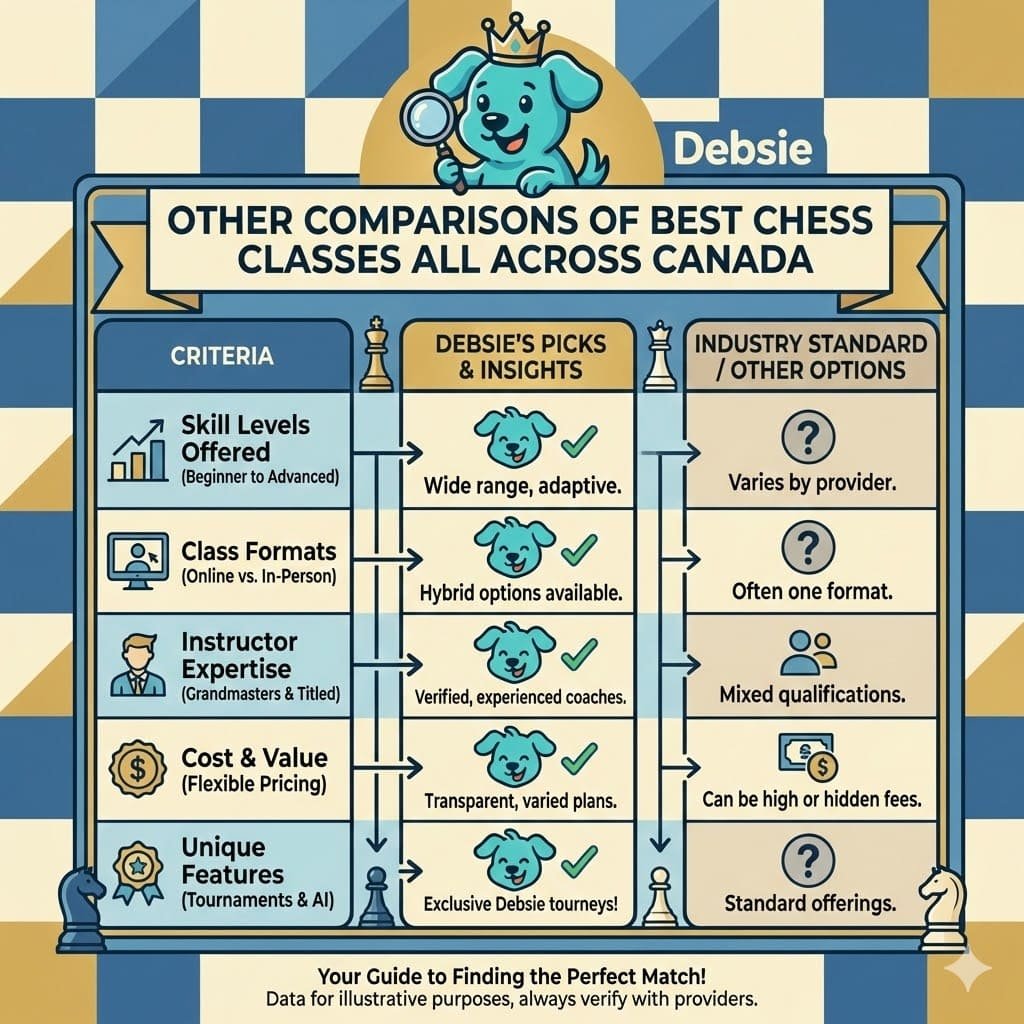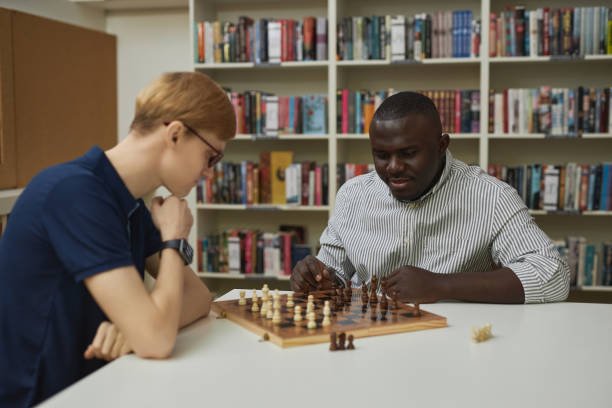If you live in Lethbridge and your child is showing interest in chess—or maybe you want to improve your own skills—you might be asking yourself: Where do I start? Who’s the best tutor? Should I go to a class or learn online?
These are great questions. And in this guide, we’re going to help you answer them all.
There are many ways to learn chess. Some people join local clubs. Some find private tutors. Others try free videos. And many are now discovering that the best learning happens online—with the right coach, the right method, and the right support system. That’s where Debsie comes in.
Debsie is not just an online chess class. It’s a global chess academy built around how kids and teens learn best. Lessons are one-on-one. The plan is tailored for each student. And every lesson helps the student grow—not just in chess, but in focus, confidence, and clear thinking
Online Chess Training
Landscape of Chess Training in Lethbridge and Why Online Chess Training is the Right Choice
Lethbridge is a peaceful city. It’s a great place for families, schools are strong, and the community is close-knit. But when it comes to finding the right chess class, the options are still growing.
You might find a chess club at the library or a group class run at a school once a week. A few tutors may offer lessons at home or in small groups. But many of these sessions are very casual. Some don’t follow a curriculum.
Others may stop over holidays or struggle to keep students motivated. If your child wants to grow step by step and actually improve, it’s not always easy to find the right setup.
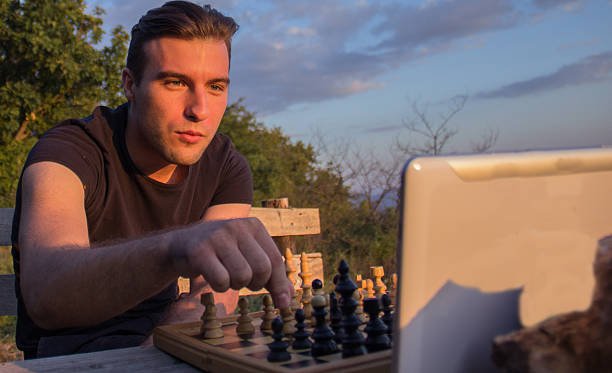
With online chess lessons, your child doesn’t have to rely only on what’s available nearby. They get to learn from highly trained coaches who could be anywhere in the world—without ever leaving your home. And that changes everything.
When your child learns chess online, they don’t sit at the back of a classroom. They sit front and center, one-on-one with a coach who’s fully focused on them. There’s no pressure from other kids. No waiting. No distractions. Just pure learning, in a safe, friendly setting.
Online lessons also fit easily into busy lives. No need to drive across town. No need to rush through dinner or fight traffic. Whether it’s after school, on the weekend, or during a quiet evening, you can choose a time that works for your child—and your family.
And best of all? The tools online coaches use now are amazing. The chessboard is right there on the screen. The coach can draw arrows, highlight ideas, and show moves clearly. If your child forgets something, they can go back and rewatch the class or review their notes. It’s like having a chess coach right there in the room—but even better.
Parents in Lethbridge who’ve tried online lessons often say the same thing: “I wish we started sooner.” Their kids are improving faster, staying more engaged, and even building skills that help in school—like focus, patience, and creative thinking.
How Debsie is The Best Choice When It Comes to Chess Training in Lethbridge
Now let’s talk about Debsie. This is where online chess training truly shines.
Debsie is not just a random tutor teaching chess online. It’s a full chess academy—one that’s helped students in over nine countries become stronger players and smarter thinkers.
Every student at Debsie starts with a trial lesson. This isn’t a sales pitch. It’s a real class where the coach gets to know the student’s current level.
At Debsie, every lesson is one-on-one. That means no group distractions. No trying to keep up with others. Just you and your coach, working together. The coach explains things using a shared digital board. You can move the pieces.
The coach can show patterns. If you get stuck, they explain again. Slowly. Kindly. Until you get it.
And after the class ends? That’s not the end.
You’ll get homework made just for you. If you’re weak in endgames, your homework will focus on endgames. If tactics are tricky, you’ll get the right puzzles to fix that. Every class builds on the last.
There’s no guessing what comes next. There’s a curriculum—built from years of coaching experience, constantly updated to make learning easier and faster.
Debsie also gives feedback during the week. If you play a game on your own, the coach can help you review it. If you have a question between classes, you can ask. There’s a real connection here—not just a teacher, but a mentor who cares about your progress.
And more than that, Debsie teaches life skills through chess. Focus. Patience. Planning. Staying calm under pressure. Learning from mistakes. These skills matter in school. In sports. In life. And Debsie brings them out in every lesson.
The feedback from Lethbridge families has been beautiful. They love the structure. They love the kindness of the coaches. They love seeing their kids light up when they win their first game—or solve a hard puzzle for the first time. Most of all, they love how easy it is. No commuting. No missed classes. Just pure learning.
That’s why Debsie is the top choice for chess students in Lethbridge. We make learning chess simple, fun, and powerful.
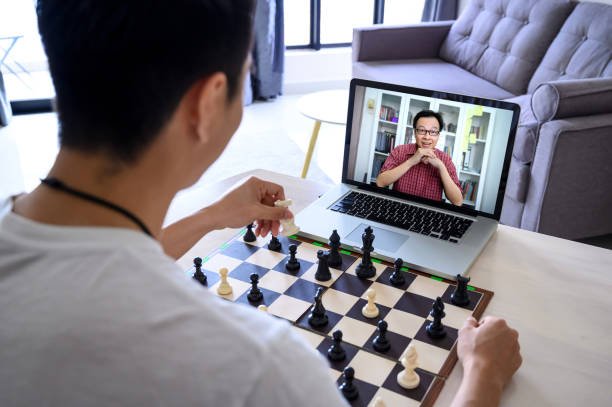
Offline Chess Training
Now let’s take a look at how offline chess training usually works in Lethbridge.
In most cases, offline training means going to a local club, joining a school program, or meeting a tutor in person—maybe at your house, maybe at theirs. These are usually once or twice a week. Some lessons are one-on-one, but many are done in small groups.
For some students, this setting can be enjoyable. It feels social. You get to sit across from someone, shake hands, move real pieces on a real board. There’s something nice about that old-school feeling.
Some local clubs in Lethbridge offer chess evenings, where kids come together, play games, and listen to a coach share tips. If your child enjoys the social part, this can be a fun way to explore chess.
But let’s be honest: fun is not always the same as learning.
Most offline classes don’t have a step-by-step plan. One week they talk about how to open the game. The next week it might be endgames. Sometimes the coach just watches kids play and gives advice. That’s not bad—but it’s not enough if your child wants to improve.
Another issue with offline training is time. Every class means getting ready, driving over, finding parking, and driving back. Add in Edmonton’s unpredictable weather—or even just a busy school day—and you start to wonder: is all this effort really paying off?
Many offline classes are also group-based. And in groups, learning becomes slower. The coach has to split their time between students. Maybe your child wants to learn forks, but the class is reviewing how pieces move. Or maybe your child is ahead—but gets stuck waiting for others to catch up. That can be frustrating.
Also, once the lesson ends, it’s over. There’s usually no recording to review. No personal feedback between lessons. No custom homework. Just wait until the next week.
That’s the challenge with offline chess training in Lethbridge. It’s not that it’s bad. It just isn’t always enough—especially for students who are excited to learn and want to keep moving forward.
That’s why more and more families are exploring better ways to learn. Ways that don’t just entertain, but actually teach. And that’s where online chess programs like Debsie have become the smarter, simpler, and more powerful choice.
Drawbacks of Offline Chess Training
When most parents think about chess lessons, they imagine a cozy room, a teacher with a board, maybe a small group of kids around the table. It feels familiar. Safe. Maybe even old-fashioned in a good way.
But once you get started, you begin to notice the little things that hold students back. These aren’t just small annoyances. They’re the kinds of things that slow learning, frustrate kids, and make parents wonder if they’re getting their money’s worth.
Let’s talk about the real problems with most offline chess training.
A lot of local tutors and clubs don’t follow a proper step-by-step plan. They teach what they feel like that week. Maybe it’s a few tactics. Maybe it’s a famous game. Maybe they just let the kids play while they walk around giving tips. That can feel fun in the moment, but the student walks away without learning something solid. And over time, progress stalls.
In Lethbridge, many offline classes are done in small groups to keep costs down. But here’s the thing: every student is different. Some kids are just starting out. Others already know openings and want to prepare for tournaments. One coach can’t focus on everyone at once. So students either feel lost or bored. Either way, they stop enjoying the process.
Most offline teachers don’t give detailed homework or review games you play outside of class. If you play a game online and make a mistake, there’s no one helping you understand why. You have to wait until the next lesson—if you even remember to ask. That gap hurts learning. You miss the chance to fix errors right when they happen.
Parents are busy. Kids are tired after school. Getting to a lesson, waiting during the lesson, and driving back can take hours. Add in snowy winters, traffic delays, and sudden schedule changes—it becomes a chore. Learning shouldn’t feel like a chore. It should feel easy and smooth.
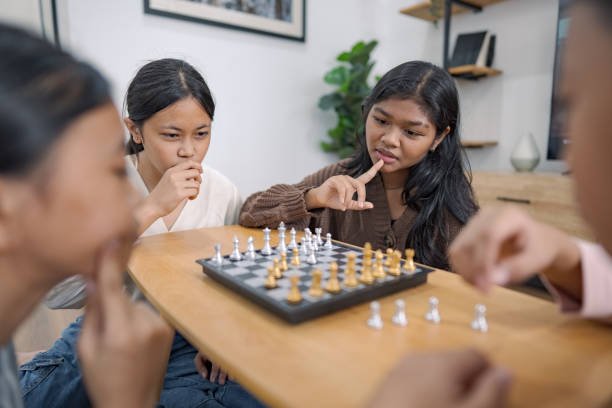
n online chess training, students learn with digital boards, arrows, live analysis, recordings, and personal dashboards. These tools make learning faster and more fun. Offline coaches don’t usually have those. If your child forgets a tactic or an idea, it’s gone. There’s no “rewind” button.
Best Chess Academies in Lethbridge
In Lethbridge there are a few chess clubs, programs, and tutors. Some are informal, some more formal. I’ll compare a few of them so you see what you could join, and why many families are choosing Debsie instead.
1. Debsie
Debsie is the online chess academy where everything is built to help you learn in a clear, steady, kind way. If you choose Debsie, you get much more than just a lesson.
You begin with a trial lesson. This is not just “let’s see if you like it.” The coach uses this time to see exactly what you know, what you find hard, and how you learn best. This helps in making a plan just for you. Not a plan for someone else, but your plan.
Your lessons are one‑on‑one, live online. You and your coach, sharing a board on screen. You can ask questions. You can see mistakes, rewind, go back. The coach shows tactics, strategies, endgames, openings, middlegame planning.
The pace matches you. If something is too hard, coach slows down. If something is easy, coach pushes you forward. You are never stuck waiting for others or bored by repeating things you already know.
Between lessons you get homework that is picked just for you. If you need to work on tactics, you get puzzles. If you struggle in endgames, you get drills. If you make the same mistake in games, coach helps you see the pattern, gives you exercises to break that pattern. You don’t just “do homework” in general—you work on your weak spots.
Debsie uses a structured curriculum. That means you start with basics (rules, how pieces move, simple checkmates), then go to more advanced ideas: tactics (forks, pins, etc.), then strategy, planning, opening principles, endgames, thinking ahead, avoiding mistakes. As you grow, lessons include handling pressure, thinking fast, managing time, reviewing your own games.
Every lesson links to what came before and leads to what comes after. You always know where you are, and where you are going.
Debsie also gives feedback outside of classes. You can send in games you played on your own, and coach will review. Coach gives you notes: what you did well, what to improve, plus exercises. This keeps your learning live—even between lessons.
Life skills are part of what you get. Focus, patience, thinking before acting, recovering from mistakes—all skills that help beyond chess. Many students say: because of chess lessons with Debsie, they pay attention more in school, think more before answering, stay calm when things don’t go well.
2. Lethbridge Chess Club
The Lethbridge Chess Club is one of the main physical clubs in the city. It meets weekly (for example Sundays 1‑5 pm at Galt Museum, also Monday nights at Lethbridge Polytechnic).
This club is great for casual play and practicing with others. If your goal is to meet people who like chess, play many games, and enjoy the fun of competition, this club helps. Kids and adults both attend. There is always something friendly to do: casual games, sometimes events.
3. Free Youth Chess Clubs / After‑School Programs
There are a few free or low‑cost youth chess clubs in Lethbridge. For example, the “Free Chess Club (LFS Youth Settlement Services in partnership with University of Lethbridge)” which runs at École Agnes Davidson, meeting Fridays for youth ages ~10‑18
These are excellent for beginners or young players who want to get started without big cost, to learn rules, play with peers, build enjoyment. They give access to chess in community settings, and that’s important. But their structure tends to be light: sessions may not happen every week, the coaching may be more general, not personalized.
4. University of Lethbridge Student Chess Club
At the University of Lethbridge there is a student chess club. It gives ways for students (university level) to meet, play, compete, sometimes discuss chess strategy.
If you’re a university student, this is a good option for playing real games, competing, meeting peers, and learning socially. But often the club work is peer‑driven. Coaching is not as formal or scheduled. If you’re looking for week‑by‑week improvement, with targeted feedback, you may find gaps: maybe not enough coaching, perhaps no personalized exercises, no tracking of your weak points.
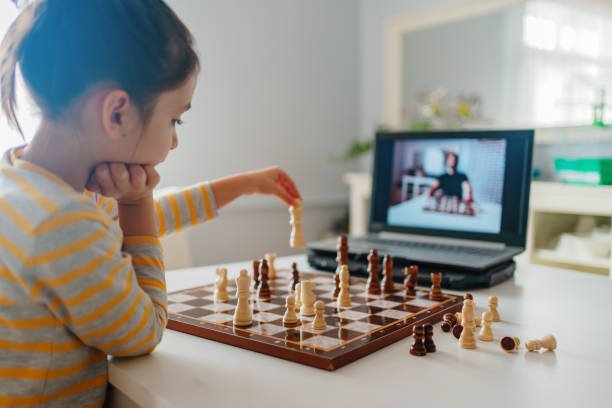
5. Beginners / Drop‑In Chess Programs
There are drop‑in programs (for example Beginners Drop‑In Chess Club at Nord‑Bridge Seniors Centre) where people come casually, play, learn basics, enjoy chess socially.
These are very good if your goal is fun, relaxation, meeting chess lovers, learning basics. If you have a child who just wants to try chess, or wants to play more but not worry about improvement, these will help. But for serious improvement, or competitive aspirations, they likely won’t push you far enough. The coaching is less intense, less structured, less tailored.
Why Online Chess Training is The Future
Chess has been around for centuries. But how we learn chess is changing quickly.
In Lethbridge and many other places, people have started to expect more from lessons. They want steady growth, not just fun. They want lessons that turn weak spots into strengths. They want coaches who track progress. They want tools to help practice between lessons. They want lessons that adapt to their needs.
Online training meets these expectations. It offers tools that offline often cannot. It gives access to world‑class coaches regardless of location. It removes travel time, weather problems, schedule rigidities. It gives recordings, analysis tools, homework, detailed feedback. It allows you to learn at your pace.
Also, technology is better now. Internet, video sharing, virtual boards, chess software—all make remote learning richer than ever. Students don’t have to lose out because they’re not in a big city. They can learn from the best coach, get very good examples, get feedback immediately.
Many parents and students in Lethbridge are already seeing this shift. What used to be “offline only” is now optional. Online is no longer a backup—it often becomes the first choice.
How Debsie leads the Online Chess Training Landscape
Debsie isn’t just riding the wave of online training. Debsie is designing the wave. Let me explain how Debsie stands ahead.
Debsie builds each student’s learning path based on their current strength, their weak points, their rate of learning. The curriculum is not generic. It is adaptive. If you learn fast in openings but weak in endgames, Debsie gives you more support in endgames and sets less time on openings until you master what you need.
Debsie uses live digital boards with interactive features: coach can pause, rewind, highlight, show patterns, use color and arrows to emphasize threats, tactics, strategy. If you overlook a move, the coach stops, discusses thought process, shows alternate lines. This kind of detail is hard to get in offline group settings.
Debsie gives you homework that is meaningful. It is not “solve ten random puzzles.” It is “solve puzzles that you had trouble with”, “review your own games”, “practice the openings you are using”, “play specific positions”, “study the types of endgames you mess up.” This makes each week build on the last.
Debsie also provides feedback outside the lesson time: reviewing games, answering questions, helping you see error patterns. You are never alone with your mistakes. You learn from them quickly.
Debsie’s lessons focus also on thinking well, not just knowing moves. You learn how to plan, how to evaluate positions, how to see threats, how to be calm under pressure, how to recover after a mistake. This helps not just in chess, but in school, work, in decision situations in daily life.
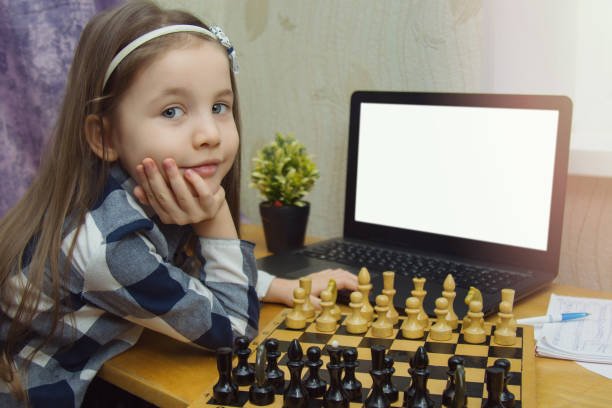
Conclusion
Choosing the right chess training in Lethbridge means thinking not just about cost or location, but about growth, enjoyment, and results. While there are many local clubs and programs that offer fun and social benefits, few match the structured, personalized, feedback‑rich experience that Debsie provides.
If you want your child (or you) to learn steadily, overcome weaknesses, gain confidence, and grow in life as well as in chess, Debsie is your top choice. You can start with a free trial, see how it feels, and move forward from there.
👉 Take your free trial class here
Comparisons With Other Chess Schools:
Other Comparisons of Best Chess Classes All Across Canada:
